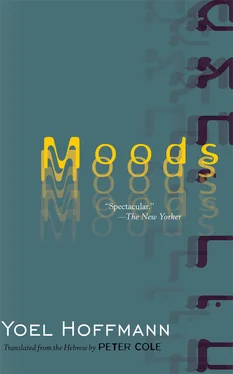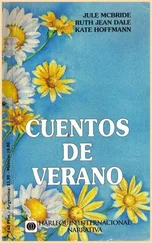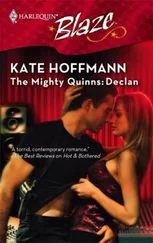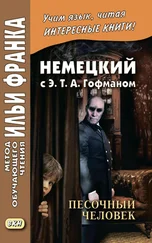The soft-mindedness of these people breaks our heart. Their feet are firmly planted in the wailing of Yosef Haim Brenner, but their spirits are free and they see what corresponds and doesn’t, beginning with the sefirah Ayin (Nothing) and ending at the sefirah Malkhut (Kingdom) — which is to say, here. Where it says on the door, KASHKHANSKI.
Sometimes we miss those people, as the thrush longs for the dove. If we could meet them in the cafés of Tel Aviv, we would.
At night we toss from side to side and sometimes we dream that we’re standing in a huge synagogue but instead of reading the prayer book everyone is reading the evening paper.
[93]
Our Great Pyrenees never has anything critical to say about us. He gets straight to the heart of things. If there’s sorrow he sees sorrow. If it’s joy — he sees the joy. Lesser dogs run away from him, and he doesn’t even glance in their direction. The garbage-bin cats look on at him tranquilly and don’t so much as budge from their places, not even if his fur almost grazes them as he passes.
His heart beats like the bell of a great temple, and in his eyes you can see the residue of the earliest stages of the universe (before the great break of creation).
And there is also a person like that. At a bakery. In the Arab village of Tarshiha. These are the ideas that Plato talked about. Dog. Man.
[94]
However you put it, the shards of things too are whole in their way. Once we met a book reviewer who wrote a sad poem.
No doubt she longed for a world without books or a world in which books contained just a single word, repeated endlessly.
It was clear that her room (most likely in a rented apartment) held a dirty glass shelf with four or five jars of face cream. And cassettes by that singer, what’s her name? Mercedes Sosa.
And that same dress for whenever she went out, since the other dresses were cruel to her figure. And the books. Something about revolutions. And psychology. And Saramago’s most recent novel.
We don’t know if she shaved her legs, but if she did we’d suggest that she find an editor in chief, at a publishing house, who would stroke them.
[95]
This is also the answer to the Zen riddle about the sound of the one hand, and also the answer to the torments that Freud says a person endures. That is, that someone should touch someone, and so forth.
We think that our readers should use this book to look for another person. For instance, he should make it fall to the floor in a bar or a pub and then pick it up and ask a woman: Is this yours? Or put two glasses of red wine on it (we’ll make sure it’s big enough) or stick a knife into it and say, If the knife reaches the word love , you’ll leave with me (we’ll be sure to scatter the word throughout the book) or, If your back hurts you should put something hard under your head (and therefore we’ll put out a hardback special edition).
Once (we remember) we used to pile books on a chair in order to reach high places.
[96]
We know a man who took one of the poet Shneor Zalman’s books with him to his grave (which is to say, we knew him).
Our readers may not know this, but Shneor Zalman fought against Shmuel Yosef Agnon so that he, and not Agnon, might win the Swedish prize. Each of them (Shneor Zalman and Agnon) had supporters, who sought to undermine one another and wrote letters and summoned ambassadors and convened mutually hostile committees.
Now both of these writers (and most of their readers) are dead and other writers (and readers) have taken their places, but we haven’t heard of anyone (apart from that one man) taking a book with him to his grave.
At the cemetery we saw blank tombstones and we understood that most of these people were waiting for their spouses. But if you’re going to take a book with you when you go, you should take Dale Carnegie’s How to Win Friends . .
[97]
We don’t know why happiness is so sad. Maybe because we see pieces of things, like a hand or a mezuzah, and want the whole thing.
My stepmother Francesca was already 83 and her eyes had gone dim. She could barely make out — and only then with great difficulty and with special lenses — very large shapes, and nonetheless she played bridge. She’d bring the cards very close to the lenses. At the same time she’d be speaking to Mrs. Shtiasny and Mrs. Minoff with great excitement about one thing or another.
What she didn’t see she would feel, and what she couldn’t feel she’d imagine, and she never said (or thought) that something was missing. If she’d gone up to the Himalayas the Rishis would have borne her aloft on their palms and burned incense at her feet.
What annoyed us was her habit of speaking only of practical matters. But this is one of our faults.
[98]
There are people who return the Divine Presence to Tel Aviv when they smoke cannabis. A great cloud wafts up over this city of sin, and all in a flash is forgiven.
People who are usually quite sharp (journalists, etcetera) find it a challenge to distinguish between a knife and fork, but a benevolent spirit enters their bones, and over the course of an hour or two they forget (which is so unlike them) all the appropriate ways of behaving.
We knew a man whose two names (first and last) were modern. Something like Yaron Yar-Ad, or Ran Ziv-Or (during the days of those kibbutz sandals that cost four hundred shekels). He was highly conscious politically, and therefore occasionally ate sashimi from the lunchtime menu. Now (under his cloud of hashish), he even loves settlers.
We need to check in Genesis to see on what day God created the grasses (just now it seems too hard to remember) and offer up a prayer of thanksgiving.
[99]
There are people in whose bodies cannabis can always be found, and they don’t need to mix it with tobacco and light a cigarette, like that same distant relative (who was born in 1921) we used to call Uncle Shamu.
First, he jumped off an illegal immigrants’ boat into the sea, near the coast of Caesarea, wearing a wide-brimmed hat.
Second, he immediately befriended (after two or three days) an Arab widow he’d met in Jaffa and went to live in her home. That widow in time became the only person who could speak high Hungarian in the entire Muslim world.
Third, he sold fountain pens, the nibs of which were made of gold. He found himself a small store on the border between Tel Aviv and Jaffa and over it hung the sign SHAMU PENS.
Fourth, he went into a mosque wrapped in a tallis.
But most of all, when he walked (from Tel Aviv to Jaffa and back) his shoes moved along at the height of the upper windows and the wide-brimmed hat on his head passed over the rooftops.
[100]
Generally speaking. What floats floats. There’s nothing one can do about it. The news is divided into grammatical components. Syllables here, and consonants there. Sometimes you hear, as though it were Czech, a word with seventeen consonants.
Every woman opens her arms. White sheets flutter in the breeze. Suddenly Doctor Semmelweis arrives (he discovered the cause of childbed fever). You drink espresso and think about a cabbage salad. The Hebrew cantillation signs are homosexual. You go to the Home Center and ask for earphones and they give you birds. It seems to you that water is flowing under the streets. You see the rays of the sun one by one, as though in a child’s drawing. No one is more lovable than the plumber. Yoel Hoffmann is the name of a powder. You hear the muezzin everywhere.
Evening is morning, although it’s evening and the morning is morning, and nonetheless we don’t get confused.
[101]
We haven’t yet spoken of the great theories of mankind. Sometimes the spirit spins around itself like a whirlpool at sea, and the soul sinks.
Читать дальше












